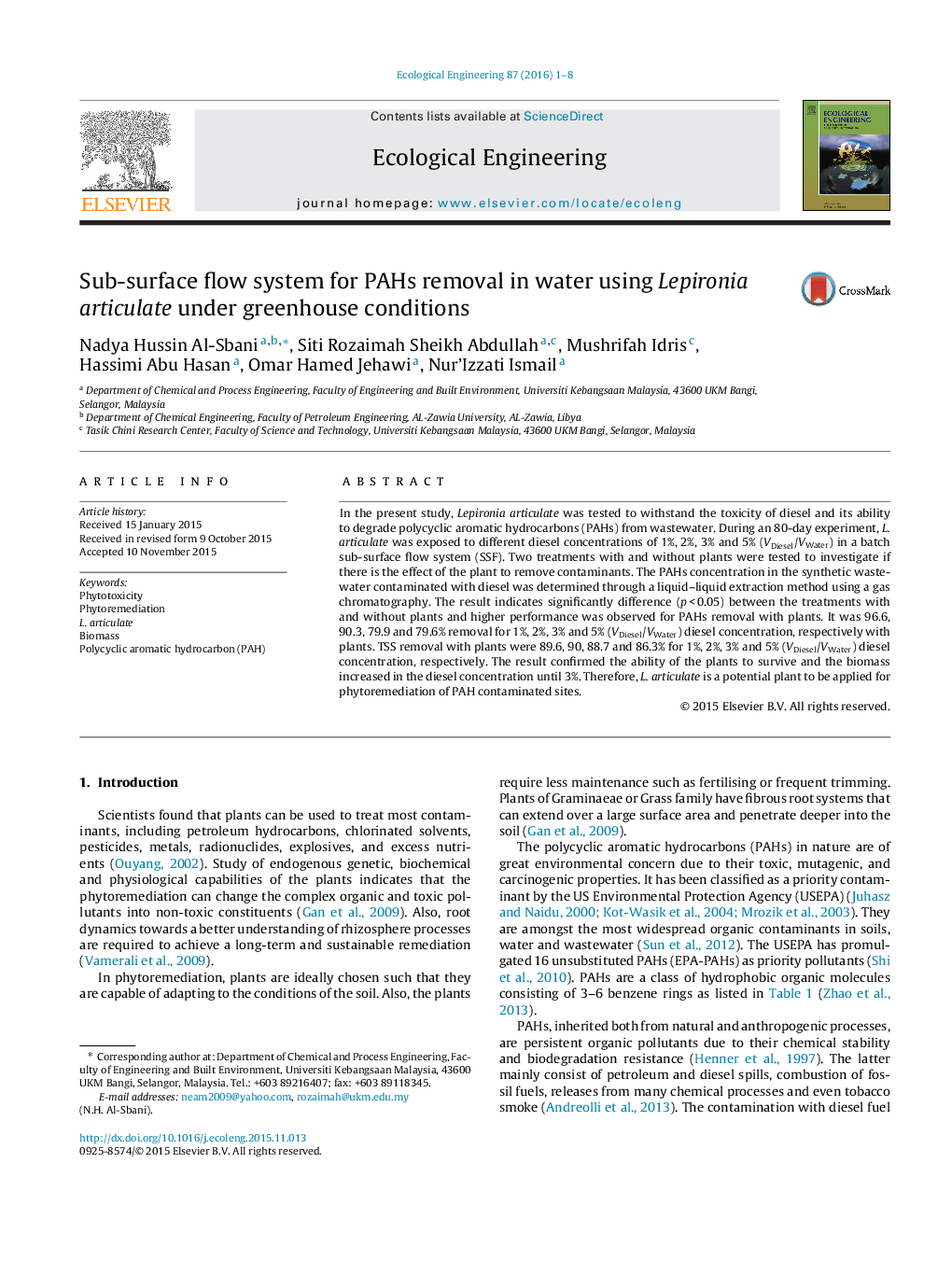| Article ID | Journal | Published Year | Pages | File Type |
|---|---|---|---|---|
| 6301423 | Ecological Engineering | 2016 | 8 Pages |
Abstract
In the present study, Lepironia articulate was tested to withstand the toxicity of diesel and its ability to degrade polycyclic aromatic hydrocarbons (PAHs) from wastewater. During an 80-day experiment, L. articulate was exposed to different diesel concentrations of 1%, 2%, 3% and 5% (VDiesel/VWater) in a batch sub-surface flow system (SSF). Two treatments with and without plants were tested to investigate if there is the effect of the plant to remove contaminants. The PAHs concentration in the synthetic wastewater contaminated with diesel was determined through a liquid-liquid extraction method using a gas chromatography. The result indicates significantly difference (p < 0.05) between the treatments with and without plants and higher performance was observed for PAHs removal with plants. It was 96.6, 90.3, 79.9 and 79.6% removal for 1%, 2%, 3% and 5% (VDiesel/VWater) diesel concentration, respectively with plants. TSS removal with plants were 89.6, 90, 88.7 and 86.3% for 1%, 2%, 3% and 5% (VDiesel/VWater) diesel concentration, respectively. The result confirmed the ability of the plants to survive and the biomass increased in the diesel concentration until 3%. Therefore, L. articulate is a potential plant to be applied for phytoremediation of PAH contaminated sites.
Related Topics
Life Sciences
Agricultural and Biological Sciences
Ecology, Evolution, Behavior and Systematics
Authors
Nadya Hussin Al-Sbani, Siti Rozaimah Sheikh Abdullah, Mushrifah Idris, Hassimi Abu Hasan, Omar Hamed Jehawi, Nur'Izzati Ismail,
